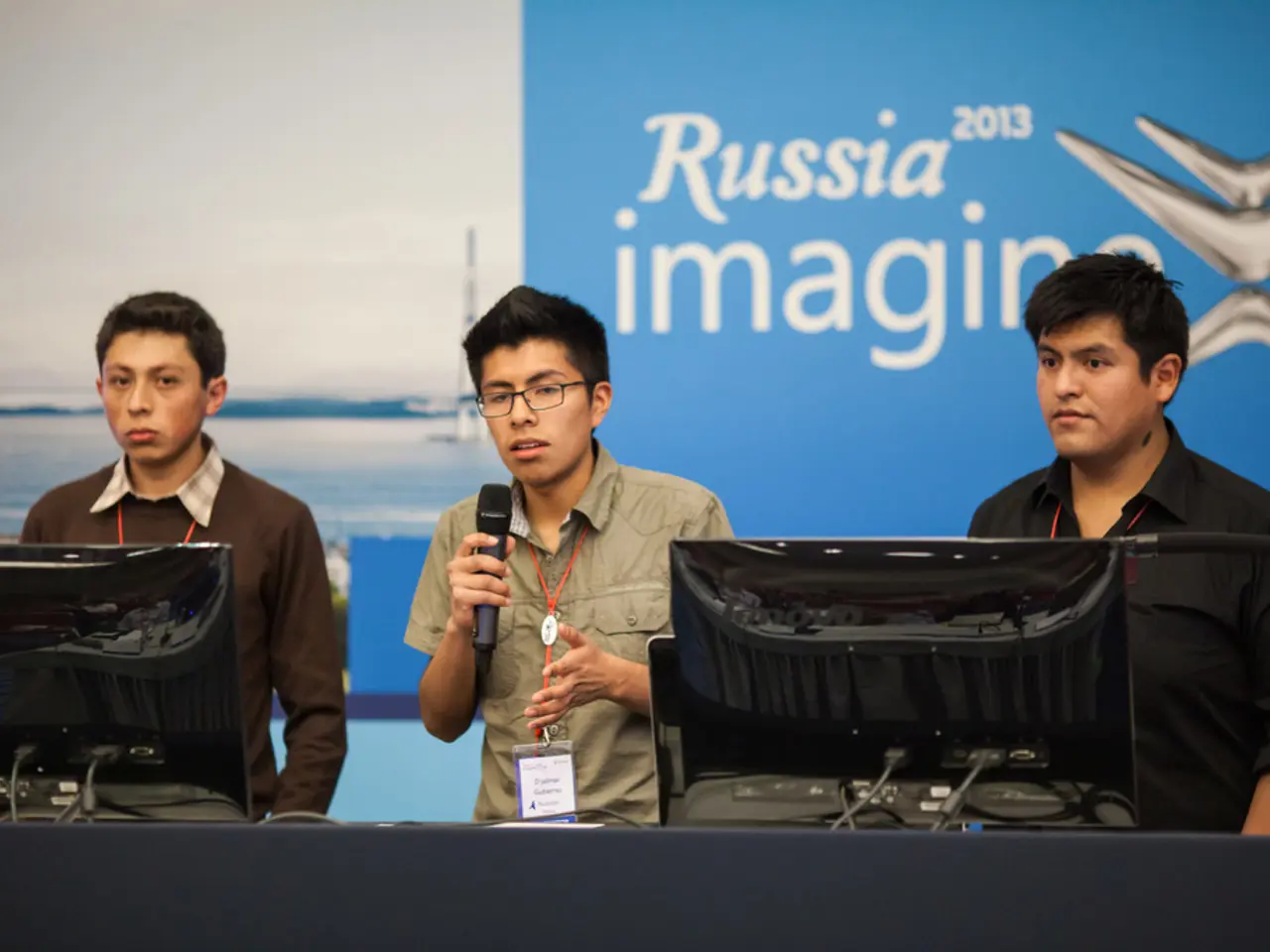Bridge builder advocacy by Gitta Connemann, in favor of the AIF organization.
In a significant address at the 72nd annual meeting of the AIF (Alliance for Industry and Research e.V.) on July 7, 2025, Parliamentary State Secretary Gitta Connemann underscored the strategic importance of industrial research funding programs in Germany.
Connemann praised the role of AIF research associations as vital bridge builders, strengthening the competitiveness of German companies. She highlighted key programs such as ZIM (Central Innovation Programme for SMEs), IGF (Industrielle Gemeinschaftsforschung – Industrial Collective Research), and INNO-KOM (Innovation in Communication Technologies) as pillars for fostering innovation, technology transfer, and cooperation between SMEs and research institutions in Germany’s industrial sector.
The government's intention, Connemann stated, is to maintain and further develop these schemes to adapt to new technological challenges and enhance Germany’s global manufacturing competitiveness. This includes initiatives like Industrie 4.0 and Manufacturing-X, which integrate advanced digital technologies into industrial processes. The programs aim to facilitate the integration of smart manufacturing, interoperability standards like umati, and sustainable innovation, particularly to support SMEs navigating digital transformation and emerging technologies.
Funding focus continues on collaborative, application-oriented research with quick transfer to market-ready solutions. While specific details of new funding increments or structural reforms were not outlined, the continuing commitment to these programs, as confirmed by leadership at AIF, suggests stable or increased funding aligned with broader government innovation policy priorities.
These priorities include reinforcing public-private partnerships, speeding up commercialization of industrial research, and embedding climate-friendly, sustainable technologies into industrial practices.
The AIF, under its new focus, is intensifying efforts to strengthen industrial research in Germany, with a particular emphasis on cross-industry knowledge transfer and leading networking between business, science, and politics.
Thomas Reiche, a representative of AIF, expressed appreciation for the high-ranking representative of the BMWi (Federal Ministry of Economics and Energy), Gitta Connemann. Connemann also announced a significant reduction in bureaucracy for industrial research funding programs.
The AIF board has demanded an allocation of 1 billion euros for industrial research, with 600 million euros for ZIM, 300 million euros for IGF, and 100 million euros for INNO-KOM. The Committee on the Budget of the German Bundestag has confirmed authorization commitments of up to 272 million euros, mainly for industrial research funding programs.
The name, website, and logo of AIF - Alliance for Industry and Research e.V. have been new and more concise since the beginning of the year. For media enquiries, please contact Frauke Frodl, Press Spokesperson of AIF.
Connemann emphasized that innovation has a high priority in the coalition and described it as a "consistent red thread". She concluded by stating that German applied research can be world-class with cooperation between science and business. In the past twelve months, AIF has successfully restarted, with around 60 research associations representing interests for industry and small business research in Germany.
Germany's technological sovereignty, according to Connemann, must be combined with technological openness. The IGF, a unique pre-competitive funding program of the Federal Ministry for Economic Affairs and Energy (BMWE), supports companies in their research activities.
In summary, the current state of ZIM, IGF, and INNO-KOM is that of well-established and actively supported innovation funding instruments, with future plans aimed at further digitalization, sustainability, and SME competitiveness underpinned by government backing. The AIF annual meeting served as a testament to the ongoing commitment to these programs and the future of industrial research in Germany.
- In her speech, Connemann underscored the importance of programs like ZIM, IGF, and INNO-KOM in fostering innovation, technology transfer, and business competitiveness, especially in the context of advanced technology and digitalization.
- The government's objective is to maintain and further develop these programs to adapt to new technological challenges and enhance Germany's global manufacturing competitiveness, with an emphasis on areas such as digital transformation, sustainability, and SME competitiveness.




